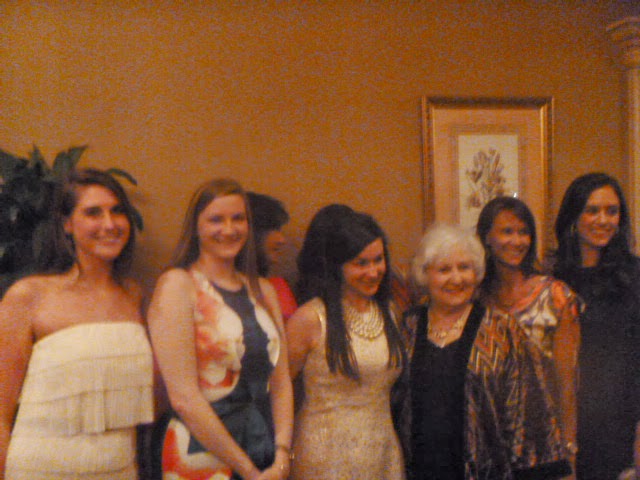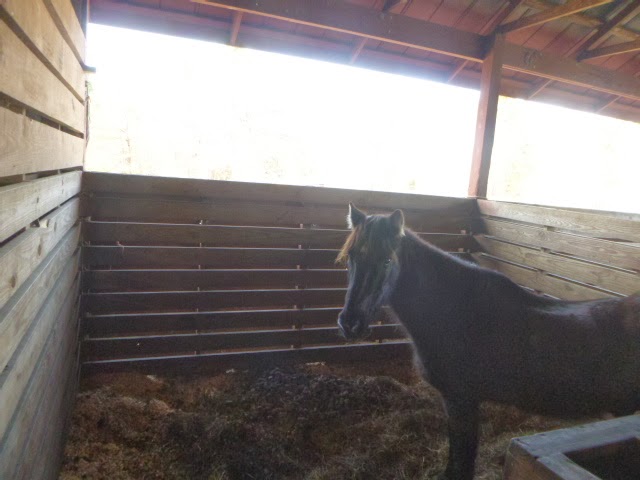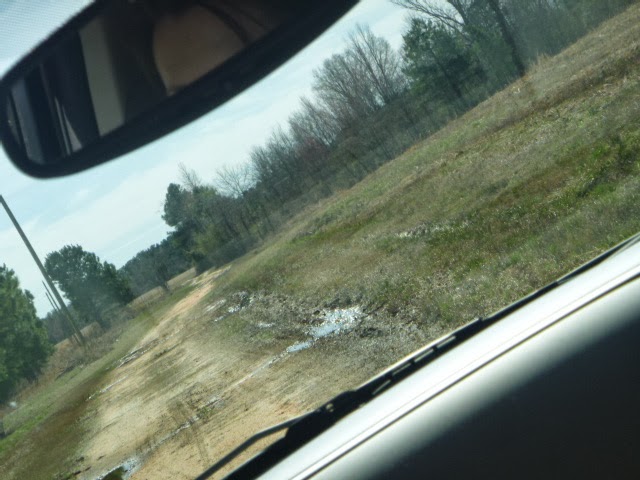 |
Illges House, Columbus, Muscogee County, Georgia, ca. 1974
|
 |
| Map of Columbus |
"All families resemble one another, each unhappy family is unhappy in its own way," Leo Tolstoy
In between my years in Atlanta and Princeton, Atlanta and Dallas, we grew up together, sort of. We were first cousins from the South. We didn’t really see much of each other after my family moved to Texas in 1979. But I learned so much from them. I still think of them always.
In between my years in Atlanta and Princeton, Atlanta and Dallas, we grew up together, sort of. We were first cousins from the South. We didn’t really see much of each other after my family moved to Texas in 1979. But I learned so much from them. I still think of them always.
The Illges were from Transylvania, the Mayhers from Ireland,
from the Irish Gaelic sept of O’Meachair.
Mayher was short for these folks who came from Country Tipperary. Not
much is known about their history, but between Texas and Georgia, they made
their way to Columbus. The descendants of William Edgar Mayher and
Beulau Christian made their lives there.
My mom was one of this clan from Columbus. For much of the 1970’s and early 1980’s, I
hung out with her sister, my Aunt Margaret, Uncle Phil, John and their kids. We listened to Sugar Hill Gang and Hank
Williams Junior together. Some of them
hung confederate flags in the back of their trucks. We fought, dunked each other in the pool and watched FAME together. When Hershel Walker ran for the Bulldogs we cheered. When he left to join the pros we understood. There were knife throwing contests, quarrels,
and screams. We swam in the pool, went
fishing, navigated family infidelities, troubles and grew apart. Between fishing and football, trashy TV and
divorce, suicide and family sagas, we grew up.
Throughout the years, I’ve seen a few of them in Sweden
or St. Paul for weddings, or reunions. Aunt Margaret brought one of my cousins’
kids, Sam, to France to hang out with us for a week for my Mom’s sixtieth
birthday party. Last summer, we visited
their family vacation cottage in the Highlands of North Carolina, vines growing over the cottage along with memories.
This year Sam was getting married. So Mom invited us to join her for the trip down.
It’s a great learning opportunity, I explained to the girls,
reminding them they do have deep roots in the South, even if they are Yankees.
 |
| Plymouth Church in Brooklyn, site of a stop on the Underground Railroad. |
One of our daughters had been studying the Underground
Railroad, visiting stops all over Brooklyn, where the Abolitionist movement found its foundation.
“Maybe you can ask if there is a stop there?” I suggested.
A closer look reveals, of course, that the last battle of
the Civil War, the War of Northern Aggression as they refer to it, was
conducted here in 1865, some four decades after the small town was founded on
the banks of the Chattahoochee River. Today, these memories linger, continuing to
influence of our politics, toxic ideas like pollution under the soil.
Still the girls twirled in their wedding dresses, getting
ready for the wedding.
And Georgia was a break from the cold. We’d enjoy a few days with family, recalling
stories, connecting the dots between legions of cousins, some of whom still
remember me.
 |
| Doing what we do in the South- go to the mall. When in Rome. |
Friday night we enjoyed
drinks and a rehearsal dinner. We talked
with Uncle Phil about our parents marriage day in Columbus a half century ago. I toasted to Samantha’s smile, joined by
legions more cousins nephews and nieces.
Saturday, we made our way down to Pittsview Alabama, riding
horses, swapping stories and enjoying a little of the country. Mom’s brother and family opened their farm to
us, sharing the day together.
The wedding would take place at the St. Paul United
Methodist Church 1858. My mom and dad
were married fifty years prior in the adjoining Illges Memorial Chapel.
Afterward, we sat taking pics, hanging out
talking with cousins, nieces and nephews. At a certain point, the girls ran out of gas for sitting in pictures.
Throughout the weekend, we recalled Aunt Margaret and
everyone else who were not there.
Every wedding reminds me of what can happen with our
lives. Yet, we hope we can be more, that
we can move beyond convention, beyond the difficulties of pasts, hopefully toward something else. Hopefully we are not consumed by formality
and routine, suffocated by tradition. Families produce lines of thinking, being, living, behaving. We learn our unhappiness here, sometimes turning these memories into something different of our lives.
At the reception, we talked about our childhoods, magazine
publishing, writing, social work, and some even mentioned coming up to
visit.
Some would gossip. Others recalled Aunt Margaret and her distinct, "if you can't say something good about someone, sit right here by me..." sense of humor. But some topics are not broached, not quite.
Throughout the weekend, I thought about Willie Morris, who had to leave the South to write for Harpers, and make his way North Towards Home.
Some would gossip. Others recalled Aunt Margaret and her distinct, "if you can't say something good about someone, sit right here by me..." sense of humor. But some topics are not broached, not quite.
Throughout the weekend, I thought about Willie Morris, who had to leave the South to write for Harpers, and make his way North Towards Home.
“You are still in the South.
You can say yes….” I noted to one of our little ones traveling through
security in Atlanta.
Growing up in the South and leaving, we are forced to reconcile ourselves with what is wonderful about the South, along with the pain and brutality of our treacherous pasts- of lynching’s, violence, and apartheid. Yet, we, I keep coming back, like many who travel north towards home. Yet, it is always with ambivalence. Morris wrote a letter to another friend who had recently moved back to the South. He was wondering if there is still anything of meaning or distinction to his life in the South.
Growing up in the South and leaving, we are forced to reconcile ourselves with what is wonderful about the South, along with the pain and brutality of our treacherous pasts- of lynching’s, violence, and apartheid. Yet, we, I keep coming back, like many who travel north towards home. Yet, it is always with ambivalence. Morris wrote a letter to another friend who had recently moved back to the South. He was wondering if there is still anything of meaning or distinction to his life in the South.
"I
wonder if the South as we once knew it still exists — if there is a South
anymore," he said. "This is a question I've been getting from friends
of mine. I think that's new. I don't know what the reason is — maybe those
media creations called Sunbelt and the New South — but I sense that people here
are feeling more a part of the wider world than ever before. They profess to
feel less a part of that old concept you and I know as 'The South.' "
 |
| The view from New York. |
My life in Dallas and Atlanta was steeped in such
feelings. Dallas felt more like a wide
open Los Angeles than the old Confederacy and I loved it. Full of possibility, it felt like an
irreverent space where anything could and would happen between here, there, New Orleans, Padre and Mexico. Atlanta felt like an old town with a modern
polish and a pr spin, ready to tell outsiders whatever they wanted to hear as
long as they opened their wallets to invest there, to rebuild the city once
burnt to its foundations. But when you
peeled away the layers, looked at the clubs or law firms, old Dixie remained in hearts and minds. Columbus felt like Atlanta was encroaching or
perhaps it was that vice versa. Yet, Thomasville, where my Dad was from, still
felt like a lost place outside of our modern world. And Columbus stood like its own land,
steeped in its own history. My father
never felt comfortable here, picking fights wherever he went. He wondered why anyone would stay, yet they
did. They still do. I still go back. My mom still goes back, but not to stay.
In North
Towards Home, Morris writes about going back to Dixie after years in
Austin, writing for the Daily Texan. The
Brown vs Board of Education decision ruling seemed to have changed little
there. But it inspired a dour spite, which seemed mean spirited and unfamiliar
to Morris. These were his friends and
family? But they seemed angry and
resentful, ill equipped to change or adapt.
It scared Morris. It scares me
when I go back. That’s a feeling that is
hard to elude. Who is welcome here and
who is not?
“The South is great as long as you’re not Black,
gay, or Jewish,” Caroline noted on the drive home, half joking. But who knows? Could the South be changing? I thought it was changing with LBJ, Carter, and Clinton and then Newt and company came rearing their way back. They disabused me of that thinking.
But I still go back because for me, it is me. As Southerners we try and reconcile ourselves with that. But its not so simple.
But I still go back because for me, it is me. As Southerners we try and reconcile ourselves with that. But its not so simple.
As Morris wrote his friend:
There is much of
the South, I unhesitatingly confess to him, that I wish I could escape forever.
I wish I could escape the smoldering malevolence behind a coed's prolonged
racial tirade among students at my house one recent evening. .... Escape the images of
the catastrophic destruction, physical and communal, of places like my beloved
Austin in Texas. Escape every manifestation of institutionalized, right-wing,
fundamentalist religion, richer and more pervasive than it ever was. Escape the
ennui of the morgue-like Sundays…
To escape the South, however — all of what it was and is — I would have to escape from myself.
ONE OF THE central themes in our history as Americans, reflected in our most enduring literature, has been the conflict between country and city, the dichotomy between village and metropolis, with all that that embraces. With the homogeneity engendered by the great television culture, and the growing power of the mighty urban nexus, that gulf remains a profound one.
To escape the South, however — all of what it was and is — I would have to escape from myself.
ONE OF THE central themes in our history as Americans, reflected in our most enduring literature, has been the conflict between country and city, the dichotomy between village and metropolis, with all that that embraces. With the homogeneity engendered by the great television culture, and the growing power of the mighty urban nexus, that gulf remains a profound one.
It is a vexing gulf, which haunts at us, dividing
us, challenging us, and changing us. I
love the South, its stories and people, its spaces for music and literature, the
horses and food, yet feel so much ambivalence about what it all means, as Dixie lingers in our politics and our minds.
Landing Newark
and making our way back to the city, it is always a relief to be home, making
our way back North Toward Home.



























































































































